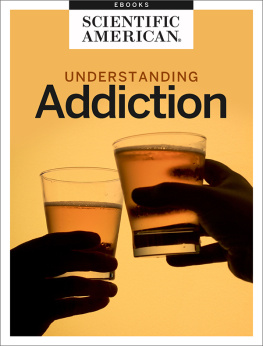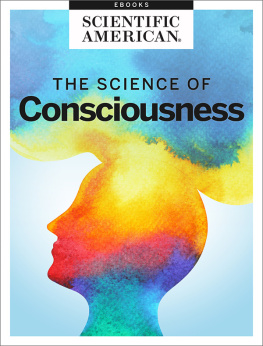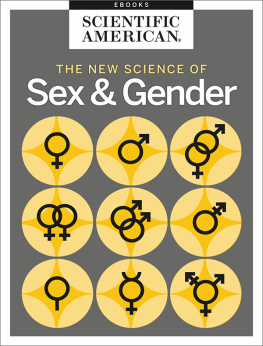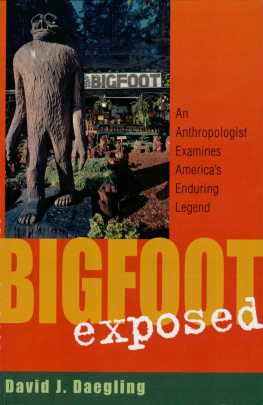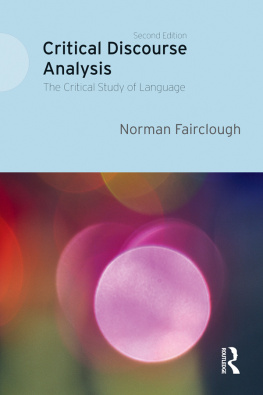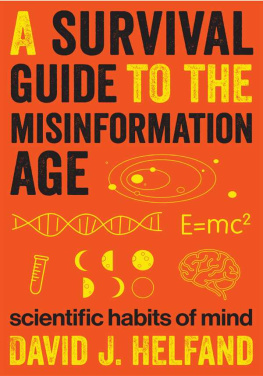David J. Tietge - Rational Rhetoric: The Role of Science in Popular Discourse
Here you can read online David J. Tietge - Rational Rhetoric: The Role of Science in Popular Discourse full text of the book (entire story) in english for free. Download pdf and epub, get meaning, cover and reviews about this ebook. year: 2008, publisher: Parlor Press, LLC, genre: Politics. Description of the work, (preface) as well as reviews are available. Best literature library LitArk.com created for fans of good reading and offers a wide selection of genres:
Romance novel
Science fiction
Adventure
Detective
Science
History
Home and family
Prose
Art
Politics
Computer
Non-fiction
Religion
Business
Children
Humor
Choose a favorite category and find really read worthwhile books. Enjoy immersion in the world of imagination, feel the emotions of the characters or learn something new for yourself, make an fascinating discovery.

- Book:Rational Rhetoric: The Role of Science in Popular Discourse
- Author:
- Publisher:Parlor Press, LLC
- Genre:
- Year:2008
- Rating:4 / 5
- Favourites:Add to favourites
- Your mark:
- 80
- 1
- 2
- 3
- 4
- 5
Rational Rhetoric: The Role of Science in Popular Discourse: summary, description and annotation
We offer to read an annotation, description, summary or preface (depends on what the author of the book "Rational Rhetoric: The Role of Science in Popular Discourse" wrote himself). If you haven't found the necessary information about the book — write in the comments, we will try to find it.
Rational Rhetoric: The Role of Science in Popular Discourse — read online for free the complete book (whole text) full work
Below is the text of the book, divided by pages. System saving the place of the last page read, allows you to conveniently read the book "Rational Rhetoric: The Role of Science in Popular Discourse" online for free, without having to search again every time where you left off. Put a bookmark, and you can go to the page where you finished reading at any time.
Font size:
Interval:
Bookmark:
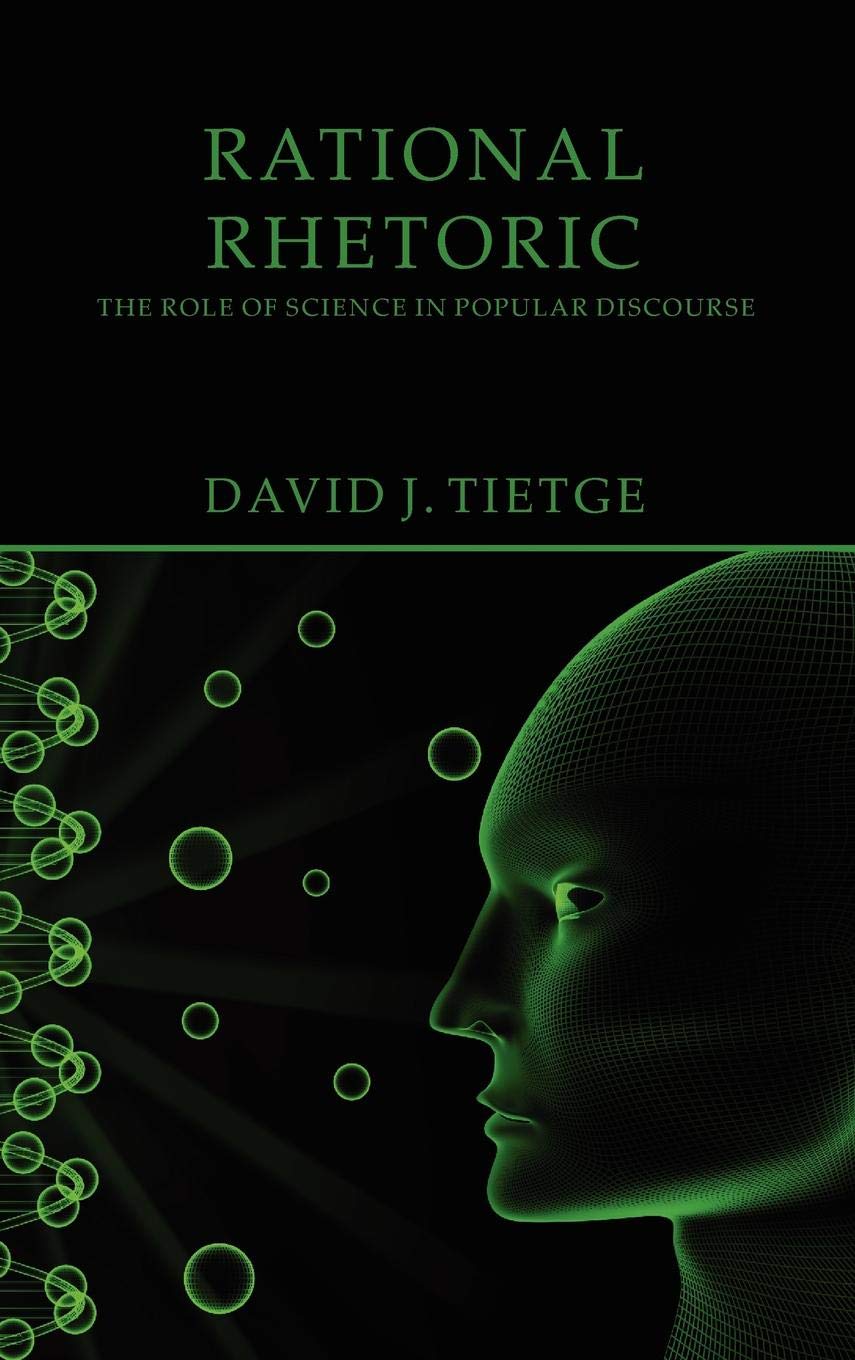
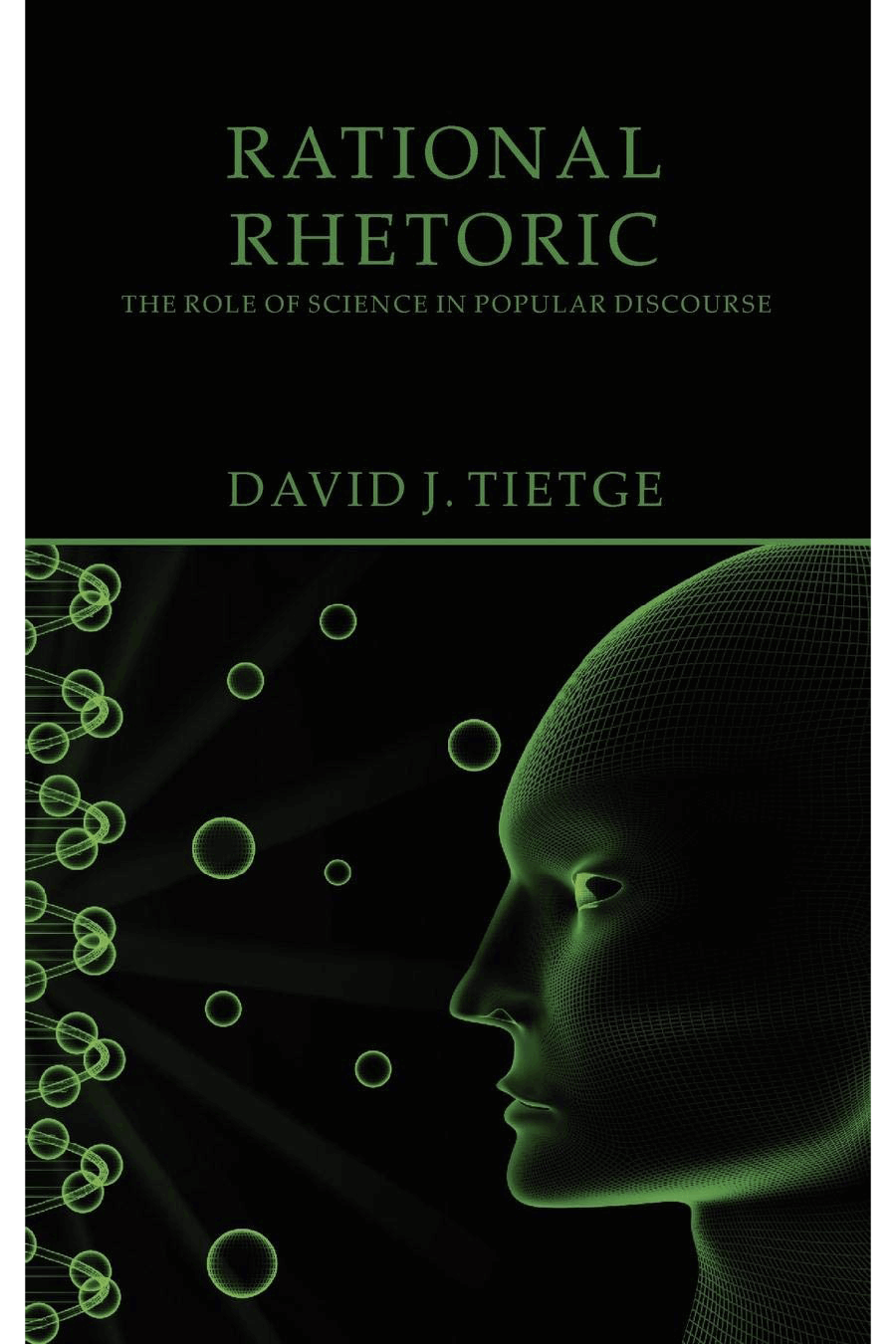
Rational Rhetoric
The Role of Science in Popular Discourse
David J. Tietge
Parlor Press
West Lafayette, Indiana
www.parlorpress.com
Parlor Press LLC, West Lafayette, Indiana 47906
2008 by Parlor Press
All rights reserved.
Printed in the United States of America
S A N: 2 5 4 - 8 8 7 9
Library of Congress Cataloging-in-Publication Data
Tietge, David J., 1966
Rational rhetoric : the role of science in popular discourse / David J. Tietge.
p. cm.
Includes bibliographical references and index.
ISBN 978-1-60235-069-4 (pbk. : alk. paper) -- ISBN 978-1-60235-070-0 (hardcover : alk. paper) -- ISBN 978-1-60235-071-7 (adobe ebook)
1. Science--Social aspects. 2. Science--Philosophy. I. Title.
Q175.5.T547 2008
306.45--dc22
2008024748
Cover image: DNA 2007 by Vasiliy Yakobchuk. Used by permission.
Cover design by David Blakesley.
Printed on acid-free paper.
Parlor Press, LLC is an independent publisher of scholarly and trade titles in print and multimedia formats. This book is available in paper, cloth and Adobe eBook formats from Parlor Press on the World Wide Web at http://www.parlorpress.com or through online and brick-and-mortar bookstores. For submission information or to find out about Parlor Press publications, write to Parlor Press, 86 Robinson St., West Lafayette, Indiana, 47906, or e-mail editor@parlorpress.com.
Contents
Foreword and a Note on Methodology
While the body of work available in the area of rhetoric of science is fairly expansive, few outside specialized academic programs in rhetoric have any knowledge of it. A peer of mine declared in a review once that there is a lot out there on the rhetoric of science. When I tell this to people outside of the sub-field of rhetoric of science, even to career academicians, they frequently reply, what is the rhetoric of science? I never thought that these two words could go together. The paradox of a large body of scholarship that is virtually unknown to anyone not interested in this area of research is that, while there may in fact be a lot out there, no one except experts in the field is reading it, and this leads to a self-referentiality and academic inbreeding that guarantees the formation of barriers for anyone not thoroughly steeped in the restricted discourse of this specialized academic community. However, this is not unusual in the world of academe. One would not expect an accountant to read about neurobiology any more than one would expect a chemist to read a literary analysis of Mrs. Dalloway. Yet, there is a growing need for people of all economic and educational levels to be informed about science, and just as importantly, about the language that science uses to achieve its information. In my earlier book, Flash Effect, I admittedly underplayed the depth of research available on the topic of the rhetorical use of scientific ideas because it was an interdisciplinary work that I wanted to make accessible to a broader range of people interested in history, rhetoric, cultural studies, and political discourse; had I chosen the traditional scholarly route for that book, it would have made it unreadable in any practical way for even the most well-rounded layperson, and it is the intent of this current project to make the material accessible not only to scholars in other fields, but also above all to the average reader.
One of the working premises in this text is that scientific ideas have not been made accessible in any truly critical way to the average person whose interest in science should be encouraged. By truly critical I mean in a way that instructs readers in the skills of humanistic critical thinking, while not merely dumbing down (a favorite and somewhat tiresome phrase of the conservative scientific elite) scientific material in the process. It is from the vantage point of rhetorical analysis that we can draw a basic conclusion about academic publishing: Far too many aloof academics are preoccupied with guarding their own sphere of interest at the expense of sharing knowledge with the rest of the reading and thinking public, and to lament that the reading and thinking public no longer exists only further emphasizes this point. If we are honest with ourselves, then we might ask how complicit we academics are in keeping the public ignorant. The success of the For Dummies and Idiots Guide book series shows how experts often patronize the very people who should be thinking about the implications of ideas central to modern life (although Fondue for Dummies could probably be sacrificed without a corresponding blow to civilization), a process that not only alienates the reading public and helps keep them shielded from matters that impact them directly, but also undermines the very democratic process that we assume is part of a broad humanistic and liberal arts education. Without education (not the indoctrination that seems to dominate public and private education, or, worse, mere job training designed to keep people busy with the technology but not with the more difficultand dangeroustask of assessing what they do in the workplace) there is nothing on which to base a truly enlightened understanding of scientific enterprises. Such enterprises, in fact, cannot be enlightened without the commencement of public interest and knowledge. Otherwise, we blow limply with whatever direction experts and authorities tell us, and it only further compounds the confusion of the general public when they see that the arguments made by the experts on which they rely so heavily are as diverse as the fields they represent. Some may like the idea that the American public seems easily swindled, that they can be manipulated with little or no real evidence or suasive acumen, but I not only firmly believe that this is a caricature of the American Everyman (and woman), but also feel that if it is true, it is another symptom that our great civilization is in its death throes. If this is true, humanism truly is the hardest faith to keep.
Education, so long held as the panacea for all social ills and as the scapegoat for all social failures, is in dire straights indeed; we invoke its power as a word while rarely cultivating its real worth and potential as a common condition for every person. It is up to the academic, more than anyone else, to lead the way. School boards have failed, as have administrations on all levels, from the local to the federal. Why? Because those who are often in the position to make the important and difficult political decisions regarding education are too often influenced by people who have little experience in, knowledge about, or genuine concern for, the state of education. (Teachers, by the way, fail only when they are set up to fail by their bosses, who are often lame duck administrators performing the will of their superiors. Those at the highest levels of educational administration are very frequently nothing more than political automatons, and they give far too much credence to the reactionary whims of their constituency. Its time we stopped blaming teachers for our own shortcomings.) Academics, as long as the tenure system remains intact (which we should in no way assume) have the happy luxury of Academic Freedom, which, at least ideally, means they can speak honestly and candidly without fear of reprisal. For those who would deny us this last bastion of intellectual libertythose who think tenure is a haven for the lazy, the kooky, and the ideologically subversiveplease consider the alternative, a world with no dissenting voice and a populous beaten into submissive silence, unaware of its own state and unequipped to foster change. This is not the image most of us have of a functional and vibrant democracy. We will no longer have any means for exploring new visions or producing a more enlightened public because universities will have adopted a business model that allows for the termination of its employees without substantial cause or justificationin many cases, for simply discussing an unpopular idea. We will produce, hire, and reward professors who toe the party line, mere puppets of the status quo with the same intellectual relevance to the advancement of our knowledge and learning as the twenty-dollar-an-hour unionized assembly line worker. The specializations that Ivory Tower academics covet so carefully as a venue for bantering among themselves the minutiae of sub-sub-sub-specialties while watching the rest of society crumble from educational decay will certainly no longer be needed nor desired. We ignore the common personthe one who possesses an innate intellectual curiosity and a natural human intelligence but no means (nor incentive) to express itat our peril. The real point here is simply this: This book strives to reach the American (and anyone else, but Americans especially, since we have fallen behind the rest of the world in so many areas, another specious cry for economic strength through occupational training) who has a healthy interest in the world around her, who wants to know what is happening in the hallowed halls of the scientific community, who wants to be able to decipher the scientific code that has such a huge bearing on her life. This book is for the common reader, the one with the purely human sense of inquiry and curiosity. This book is for the reader who has had his natural inquisitiveness stripped from him by years of misguided education, by the tedious and overwhelming demands of modern life on his intellectual energy, by the white noise that distracts his attention away from ideas of consequence and meaning, by a reward system that encourages a shallow solipsism over philosophical contemplation. This book is for the garden-variety thinking human being.
Font size:
Interval:
Bookmark:
Similar books «Rational Rhetoric: The Role of Science in Popular Discourse»
Look at similar books to Rational Rhetoric: The Role of Science in Popular Discourse. We have selected literature similar in name and meaning in the hope of providing readers with more options to find new, interesting, not yet read works.
Discussion, reviews of the book Rational Rhetoric: The Role of Science in Popular Discourse and just readers' own opinions. Leave your comments, write what you think about the work, its meaning or the main characters. Specify what exactly you liked and what you didn't like, and why you think so.

